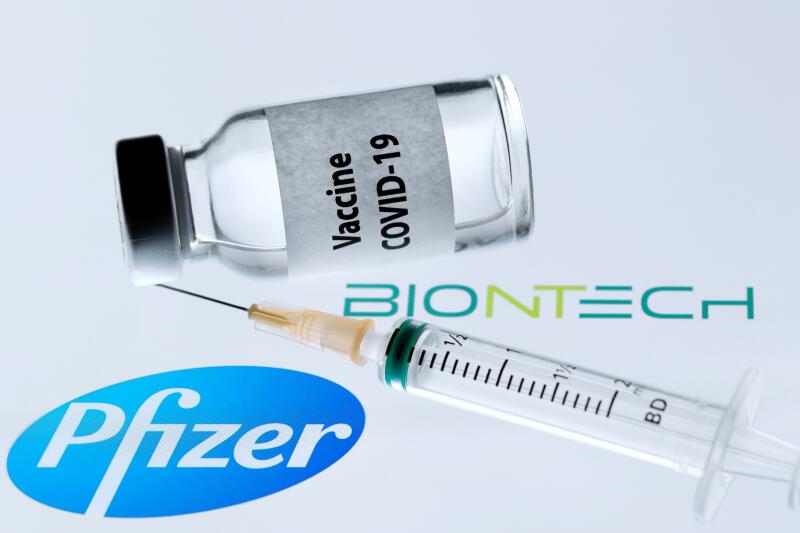Singapore approves Pfizer-BioNTech Covid-19 vaccine in Asia first: What you need to know about the shot
Sign up now: Get ST's newsletters delivered to your inbox

Pfizer said the vaccine was 95 per cent effective in preventing illness in its large, late-state trials.
PHOTO: AFP
SINGAPORE (REUTERS) - Singapore became on Monday (Dec 14) the first Asian country to approve Pfizer-BioNTech's coronavirus vaccine and said it expects to start receiving doses by the end of the year.
The United States, Canada and a handful of other countries have approved the Pfizer and BioNTech vaccine, with a mass inoculation programme also underway in Britain.
Pfizer in November said the vaccine was 95 per cent effective in preventing illness in its large, late-state trials.
Here's a look at details of the vaccine, progress on supply deals and potential approvals:
mRNA technology
The vaccine, called BNT162b2, is based on messenger RNA (mRNA) technology, which uses a chemical messenger to instruct cells to make proteins that mimic the outer surface of the new coronavirus, which the immune system learns to recognise as a foreign invader and mounts a defence against.
mRNA relies on synthetic genes that can be generated and manufactured in weeks, and produced at scale more rapidly than conventional vaccines.
The new technology has not been approved for any other vaccines so far; Pfizer and BioNTech are also collaborating to develop influenza vaccines based on mRNA.
The vaccine needs to be kept at minus 70 deg C or below.
Dosage and estimated cost
Based on the supply deal with the United States, the price tag amounts to US$39 (S$52) for a two-dose course given three weeks apart.
Pfizer has said it will not charge other developed countries a lower price for the vaccine than what the US will pay.
Protection duration
BioNTech chief executive officer Ugur Sahin has said he is optimistic that the immunisation effect of the vaccine would last for a year. Scientists do not yet know how long the effect will last.
Pending approvals
India is accelerating its review of Pfizer's vaccine for emergency use, a senior official said on Dec 7.
The European Medicines Agency said on Dec 1 that if its experts have received enough data from Pfizer about the vaccine, the agency will complete its reviews by Dec 29.
Pfizer and BioNTech submitted approval requests for their vaccine to the European drugs regulator on Dec 1.
Trials
Pfizer signed a deal worth up to US$750 million with BioNTech in March to co-develop the experimental vaccine, and it ran clinical trials in April.
Testing of the vaccine began in the United States in May after trials started in Germany the previous month.
Trials are continuing globally in 154 locations, including in Germany, Japan, Brazil and in several locations within the US in participants aged 12 years and older. The global trials enrolled about 44,000 volunteers.


